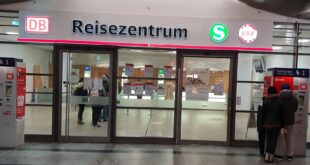Some pandemic-related special regulations expire in September while people in paid employment can look forward to receiving the flat-rate energy allowance. Other changes affect e-prescriptions, food ordered online, the number of COVID-19 vaccination doses required for the ‘fully vaccinated status’ and refugees from Ukraine, among others
••••
Corona protection measures expire, new ones are coming
The Corona protection measures in force until now are to elapse on 23 September. The enabling Infection Protection Act will then expire. The first session of the Bundesrat after the summer break is on 16 September when the successor regulation is to be voted on and which take effect on 1 October. Before that, it has to pass the Bundestag on 8 September.
Among other things, it is planned to make FFP2 masks compulsory in hospitals and nursing homes, on long-distance trains and in aeroplanes from October onwards. The obligation to wear a mask in local transport will be regulated by the federal states.
Moreover, companies will again be required to offer their employees the possibility of working from home if it’s feasible.
The measures are to apply until 7 April.
Fully vaccinated with two vaccinations only until the end of September
Only until 30 September is one considered fully vaccinated against the coronavirus with two vaccinations, after which three doses of an EU-approved vaccine are required. The last single vaccination must have been given at least three months after the second.
After two individual vaccinations, however, one still has full protection status if:
- a positive antibody test can be presented prior to the first vaccination
- or a Corona infection detected by PCR test before the second vaccination
- or a PCR-proven Corona infection after the second vaccination (28 days must have passed since the test).
Corona entry regulation extended
The relaxed proof and testing requirements for entry into Germany have been extended until 30 September. Thus, it is still not necessary to prove that one has been vaccinated against, recovered from or tested for the corona virus. The regulation was previously limited to 31 August.
However, stricter regulations continue to apply to entries from a virus variant area with regard to registration, detection and quarantine rules. Which regions and countries these are should currently be kept in mind. Currently, no areas are classified as such.
—
Pharmacies must accept e-prescription
A new law in September 2022 will make it compulsory for pharmacies throughout Germany to accept e-prescriptions. For doctors, however, the obligation to dispense e-prescriptions does not yet apply everywhere.
The introduction of the e-prescription in practices is regionally staggered. For the time being, it will only be compulsory in the federal state of Schleswig-Holstein and in the region of Westphalia-Lippe in North Rhine-Westphalia.
The innovation is to be applied nation wide at the turn of the year.
Instead of a prescription on paper, the doctor gives a digital prescription code for the smartphone, which is scanned at the pharmacy. A special app is needed for this. People who do not have a mobile phone get the code printed out.
One advantage of the e-prescription is that the prescription can be sent to the pharmacy in advance, saving unnecessary trips if the necessary medication still has to be ordered.
—
Making food ordered online safer
More and more people are buying food online and the government wants to ensure the safety of the food. From September, traders must electronically transmit product traceability information to the authorities within 24 hours if requested. This is to enable the authorities to quickly trace supply chains.
The control of online trade in perishable food is being strengthened in accordance with an applicable EU law, which was transposed into German law. Also, authorities are allowed to order goods anonymously from suppliers in order to carry out spot checks.
—
Flat-rate energy allowance to be paid out
Since the beginning of the war of aggression in Ukraine, energy costs in Germany have risen noticeably. Consumers are currently paying around five cents more for a kilowatt hour of electricity compared to the previous year. Consumers are not only noticing this directly through their electricity bills. Since the higher energy costs also affect industry and trade, the costs for food and other goods are rising.
In order to relieve citizens of the high energy prices, the federal government has already launched two relief packages. In September, all gainfully employed persons subject to income tax can now look forward to the payment of the energy allowance of 300 euros.
The special payment, called the Energiepreispauschale, is automatically paid by the employer with the monthly wage and must also be taxed. Trainees and mini-jobbers will also receive it.
Self-employed people get the energy money “via a one-time reduction in their advance income tax payment”, according to the federal government.
—
Fuel discount and 9-Euro ticket end
With the payment of the energy relief lump sum, other benefits of the past months to cushion expensive energy prices will end in September. Among other things, the so-called petrol rebate expires in the night from 31 August to 1 September. It was introduced on 1 June. The prices for petrol were reduced by about 35 cents and for diesel by about 17 cents.
Also, the 9-Euro-Ticket is no longer available as from 1 September. It was offered as a monthly ticket for June, July and August for a limited period of time. A successor model is already being hotly debated. The transport ministers of the federal states have called on the federal government to come up with proposals soon.
—
Energy saving plan: Lights off, heating down
The high energy costs are already difficult for many consumers to cope with. But in autumn and winter, the costs threaten to rise further due to increased consumption. Therefore, the state still wants to save as much energy as possible now so that there is no emergency situation with the energy supply.
The new laws in September 2022 therefore include the Energy Saving Ordinance, which is now coming into force. It is intended to save up to two percent of electricity. It applies for the next six months and includes the following energy saving measures:
- Rental clauses prescribing a certain room temperature in flats will become invalid
- No hot water in public workplaces if this is only used for washing hands
- The temperature in offices in non-residential buildings may not exceed 19 degrees
- Rooms in public buildings that are not regularly used, such as corridors, foyers or technical rooms, should no longer be heated – unless this is necessary for safety reasons
- Spotlights on buildings and monuments that are purely for decorative purposes are to be switched off
- Illuminated advertising is prohibited from 10 pm to 4 am
- Retailers are not to leave the doors of heated shops open.
Another ordinance is to follow in October with further austerity measures.
—
Entry without visa for refugees from Ukraine now limited
People fleeing the war in Ukraine can continue to enter Germany without a visa. From September, however, the visa-free regime will be limited to 90 days. In addition, the visa exemption is to be linked to the first entry in order to prevent multiple trips back and forth. After that, a residence permit is required, which must be applied for within the time limit. According to the Federal Office for Migration and Refugees, if the processing takes a long time, the application will be considered as proof of a “permitted stay” until a final decision is issued.
—
Oktoberfest starts on 17 September
For the first time since the beginning of the Corona pandemic, the Oktoberfest is coming back. The world’s largest folk festival will be celebrated from 17 September to 3 October – without Corona restrictions. The 17 festival halls offer space for around 120,000 guests.
Femi Awoniyi
READ ALSO Germany: New laws and other changes in August 2022
 THE AFRICAN COURIER. Reporting Africa and its Diaspora! The African Courier is an international magazine published in Germany to report on Africa and the Diaspora African experience. The first issue of the bimonthly magazine appeared on the newsstands on 15 February 1998. The African Courier is a communication forum for European-African political, economic and cultural exchanges, and a voice for Africa in Europe.
THE AFRICAN COURIER. Reporting Africa and its Diaspora! The African Courier is an international magazine published in Germany to report on Africa and the Diaspora African experience. The first issue of the bimonthly magazine appeared on the newsstands on 15 February 1998. The African Courier is a communication forum for European-African political, economic and cultural exchanges, and a voice for Africa in Europe.

































